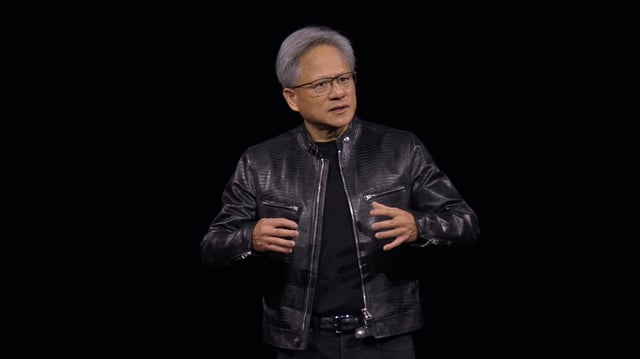Overview
- Huang's pay increase includes $26.7 million in stock awards, raising his total compensation to $34.2 million.
- Nvidia's stock price hit a near-record high of $953.83, reflecting a 99% rise this year.
- Company revenue for the last fiscal year jumped 126% to $60.9 billion, with significant growth in AI-related products.
- Huang's Nvidia shares are valued at $82.5 billion, making him one of the world's richest individuals.
- Nvidia's market capitalization reached $2.3 trillion, driven by strong performance in data center and AI sectors.


